Science Illustrated delivers natural science, break through discoveries and an understanding of the world for the entire family. Packed with stunning photography and in-depth editorial it’s a visually spectacular gateway to the world looking into the beginning of life to distant objects in the universe.
WIN $10,000 WORTH OF OUTDOOR FURNITURE
Science Illustrated
MEGAPIXEL // HORSESHOE CRAB
MEGAPIXEL // SPACE PHOTOGRAPHY
LIFE ON MARS? Perseverence rover finds evidence in spotted rock • The six-wheeled Perseverance rover has spent more than three years trundling around Mars, searching for evidence of life. Now it may have found some.
Rover drills for evidence of life • NASA’s Perseverance rover is equipped with a drill and laser light that scans the surface of Mars for evidence of life. The drill leaves behind samples that will later be collected and brought to Earth.
Take the stairs – they keep you alive • Regularly going up and down stairs provides a combination of activities that could prolong your life.
Artificial heart runs like a fast train • An American has become the first human with an Australian-designed artificial heart using similar magnetic technology to mag-lev trains.
LIFE ON EARTH: it may have begun 4.2 billion years ago • Scientists have now traced the earliest life on our planet to within just a few hundred million years after the Earth’s formation.
Not all pure-bred dogs are a genetic mess: most are as healthy as mutts • American researchers surveyed 27,000 dog owners to bust a common myth about dog health.
The life and health of different dog breeds • Size is crucial for life expectation, but also the extent to which the breed has been bred for specific traits.
Shrinking spot mystery on Jupiter may be solved • Using 3D simulations, scientists may have found the reason why Jupiter’s red spot has shrunk over the past 200 years.
Earth’s core has slowed down • A new study shows that the rotation of Earth’s core has slowed since 2010. But scientists do not know what this means.
Snoring may mean high blood pressure • According to an Australian research team, regular snoring could be linked with overly high blood pressure.
Gigantic ancient river system found in Antarctica • A mysterious rock discovery has put scientists on the track of an ancient river system in ice-covered Antarctica.
Space takes a toll on health • A health study of six astronauts who spent up to 189 days in space demonstrates the dangers of space travel.
Women better for space travel • Only 11% of the world’s astronauts are currently women, but a new study suggests that they may make better travellers, being affected less by the trials of space.
Honeybees can smell early-stage lung cancer • In a new study, researchers have demonstrated that honeybees can spot lung cancer in even small concentrations. This could lead to earlier diagnosis of the disease.
Mars’ highest volcano has frosting on top • A team of astronomers has discovered large quantities of frost on top of the Olympus Mons volcano, despite it being located in a warm region of Mars.
How do space probes communicate with Earth? • When probes that we send to other planets gather information, how is it sent back to Earth? And how long does it take for the data to get here?
Why can wool make my skin itch? • “Woollen sweaters are nice and warm, and they feel soft, but if I do not wear a t-shirt, my skin itches like crazy. Why is that?”
Why do bruises change colour? • “When I hurt myself, I get a bruise, and it gradually changes colour, turning purple, green, then yellow. Why is that?”
Why do glasses get greasy?
Is ‘mindfulness’ medically proven, or just a placebo? • Mindfulness...
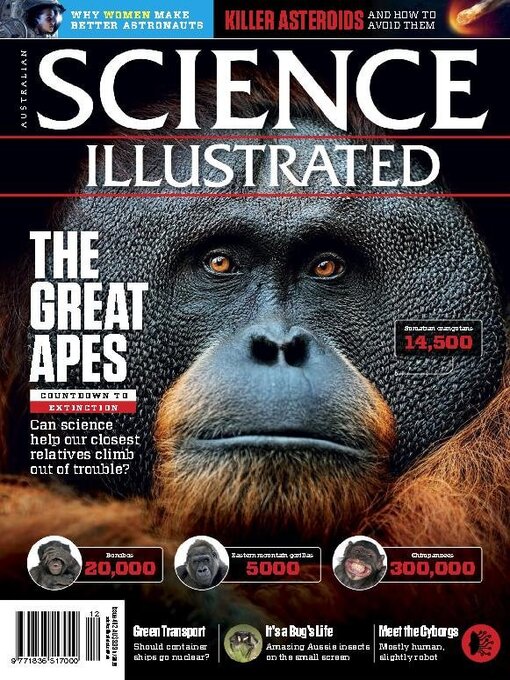
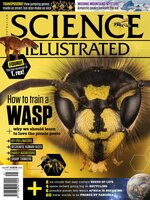 Issue 121
Issue 121
 Issue 120
Issue 120
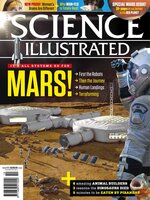 Issue 119
Issue 119
 Issue 118
Issue 118
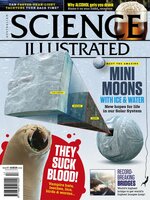 Issue 117
Issue 117
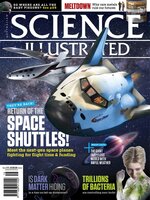 Issue 116
Issue 116
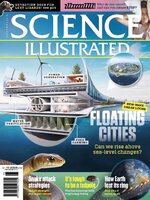 Issue 115
Issue 115
 Issue 114
Issue 114
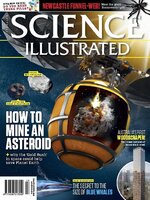 Issue 113
Issue 113
 Issue 112
Issue 112
 Issue 111
Issue 111
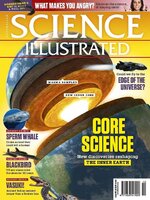 Issue 110
Issue 110
 Issue 109
Issue 109
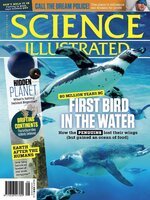 Issue 108
Issue 108
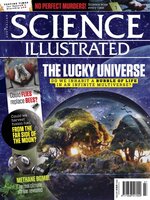 Issue 107
Issue 107
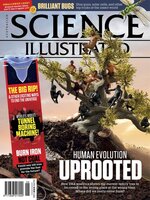 Issue 106
Issue 106
 Issue 105
Issue 105
 Issue 104
Issue 104
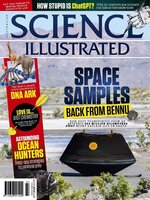 Issue 103
Issue 103
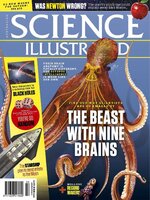 Issue 102
Issue 102
 Issue 101
Issue 101
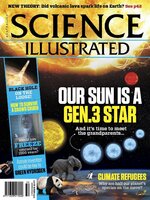 Issue 100
Issue 100
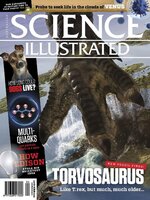 Issue 99
Issue 99
 Issue 98
Issue 98